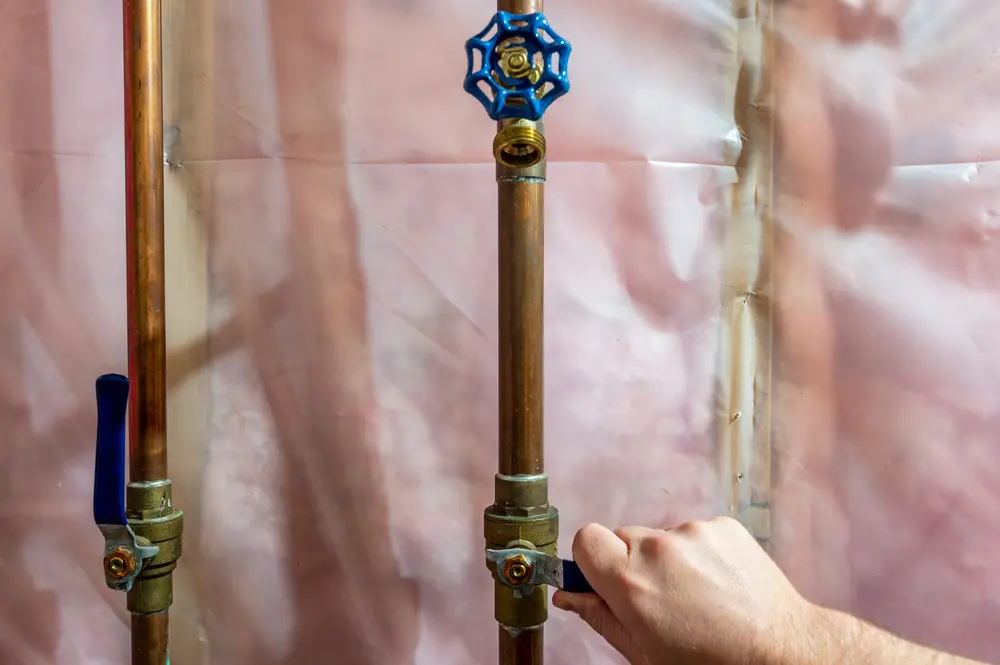Your home's air conditioner holds significant importance among its appliances. A malfunctioning unit can cause considerable inconvenience for homeowners. AC capacitors play a crucial role in the functioning of any Indianapolis HVAC air conditioning system, and a deteriorating capacitor can precipitate AC problems.
What Is an Air Conditioning Capacitor?
An AC capacitor is a piece of equipment inside the outdoor condensing unit of an air conditioner. The AC capacitor delivers power to the motor driving the air conditioning system. The capacitor jumpstarts the cooling cycle by providing a surge of energy to the system. It then sustains operation by supplying consistent electricity until the cycle finishes. Initially, it delivers a power surge equivalent to 300 to 500 percent of the system's normal electrical requirement.
Once the air conditioner motor reaches its optimal speed, the capacitor regulates excess power and provides a stable energy supply throughout the cooling process. Much like a battery, the AC capacitor is similar to a battery, storing and distributing energy as needed during operation.
How Long Does an Air Conditioning Capacitor Last?
No homeowner wants to deal with ac issues, especially during the summer months. With the AC capacitor being the air conditioning unit’s main component, a fully functioning AC capacitor is a necessary item to avoid uncomfortable living conditions. AC capacitors can last a long time but will need to be replaced down the road.
With routine maintenance on your Indianapolis air conditioning unit, an AC capacitor can last up to 20 years. To avoid any issues, scheduling regular maintenance with a professional can make a world of difference. Following up on this advice will contribute to the longevity of your AC capacitor and your air conditioning unit as a whole.
7 Signs of a Bad AC Capacitor
Being able to tell the signs of a faulty AC capacitor is a key first step to diagnosing possible AC issues. Here are seven signs to tell if your AC capacitor is bad.
1. Air Conditioner Blowing Warm Air
When your air conditioner is running but is failing to blow cold air throughout your home, it could be a faulty AC capacitor. This symptom is insinuated by the air conditioning unit blowing out warm air. When the AC capacitor is bad, it prevents itself from starting and the air conditioner is no longer able to remove heat and transfer it outside the home.
2. Humming Noise
Another sign of a faulty AC capacitor is a humming noise coming from the access panel of the condenser unit. This will force the capacitor to operate at an excessive level, resulting in that mentioned humming noise.
This sound might also originate from the AC motor. To differentiate the noise, try turning the AC unit on and off. If the humming persists, it’s likely stemming from the AC capacitor.

3. Burning Smell
A particularly worrisome sign for a homeowner is a burning smell coming from the condenser unit. This smell usually signifies a faulty AC capacitor. This may be due to item obstruction, normal wear and tear for the system, or even overexertion. You might be able to fix it by lubricating the bearings, but replacement will be a better option for a long-term solution.
4. High Energy Bills
If your capacitor is damaged, it will cause the compressor to overwork itself. When components within the air conditioning system are run excessively, this can lead to higher energy bills. Identifying symptoms like high energy bills and getting repairs will prevent costs from compounding on top of each other. Having to pay higher energy bills and repairs is a nuisance that nobody wants to deal with.
5. Air Conditioner Turns Off
One of the many signs of a bad capacitor is the air conditioner turning off suddenly. The air conditioning system should never shut off on its own. It’s common for the unit to short circuit now and then, but continuous issues with your air conditioner need to be evaluated for a permanent fix.
6. Air Conditioner Won’t Turn On
Setting your thermostat to your desired temperature and the air conditioner refusing to turn on is an issue no homeowner wants to face. One of the issues that could cause this is a bad AC capacitor. If the AC capacitor is indeed bad, the air conditioner may take longer to turn on or won’t turn on at all. Severe damage to the AC capacitor may cause the air conditioner to not turn on period.
7. Aging HVAC System
The last sign your AC capacitor is faulty is the age of the component itself. If your air conditioning system is older and is struggling to maintain cooling cycles, this is a telltale sign that the AC capacitor has worn out over time. If the AC capacitor is bad, the system will not fulfill your home’s cooling demands, which leads to higher energy bills and a less comfortable home.
Schedule an Air Conditioning Repair With Chapman
The AC capacitor, like many other components within your air conditioning system, is integral to its functionality. There are seven symptoms to keep in mind when you might be weary of a bad AC capacitor:
- Air conditioner blowing warm air
- Humming noises
- Burning smell
- High energy bills
- Air conditioner turns off
- Air conditioner won’t turn on
- Aging HVAC system
Indianapolis homeowners want a reliable air conditioning system within their homes to maximize comfortability throughout the year’s hottest months and days. Contacting Chapman Heating, Air Conditioning & Plumbing will provide inspections, repairs, and emergency needs to make sure your AC capacitor and any other components are in order.
At some point in a homeowner’s journey, residents will come across the common aggravation that is low water pressure. This leads to the pertinent question “Why is my water pressure low?” There is a multitude of reasons for low water pressure, and knowing those reasons and the common background behind water pressure will alleviate homeowner stress.
What Is a Normal Water Pressure Level?
A normal water pressure for your house ranges from 45 to 80 psi. Anything below that level constitutes low water pressure. If you are feeling wary that your water pressure is low, use a test gauge that measures psi. This handy tool can be found at most hardware stores. To measure your home’s water pressure, screw the gauge onto the hose spigot on the outside of the home. Turn the valve on, and your reading will appear.
7 Causes of Low Water Pressure
1. Water Demand
A common cause for low water pressure can be due to high water demand within the household. When multiple taps are used throughout the house, this can drop the water pressure below a satisfactory level. Between the multiple taps being used throughout the home, the demand becomes too high, leading to low water pressure.
This can easily be fixed by making sure the use of water throughout the house is divided properly by staggering activities that rely on water consumption. Examples would be avoiding showers when running the dishwasher and making sure multiple sinks aren’t being used at the same time.
2. Closed Shut-Off Valves

The main water shutoff valve regulates the flow of water in a home. If your water pressure is low, it may be because this valve is partially closed. For your home to receive proper water pressure, it’s essential that these valves are open.
The main shutoff valve can be located near the outside hose spigot or inside the home in the utility room. Make sure the valve is turned all the way to the opened position. Harsh winters in Indiana can lead to issues for not only your shutoff valve but also other plumbing fixtures in a home. Chapman Heating, Air Conditioning & Plumbing can assess the situation, determine the issue, and offer a long-lasting solution.
3. Plumbing Fixture Issues
Another issue that may cause low water pressure is fixture issues. One thing to keep in mind is the aerator on a faucet fixture. The aerator is designed to reduce an influx of water flow from the faucet without compromising water pressure. Aerators can be prone to buildup by limestone, rust, or dirt. This can be fixed by removing the aerators on your faucets and inspecting them for these issues. Reinstall the aerators once they have been cleaned to determine if the water pressure is now at a good level.
Fixtures themselves can also get clogged, and given that they are relatively inexpensive, replacing them is a viable option.
4. Broken Pressure Regulator
The plumbing system within your home contains a component known as the pressure regulator. This regulator keeps water pressure at a comfortable level in your home. Your water pressure may become low or high depending on if this component is broken.
The pressure regulator is a bell-shaped component near your home’s hose connection. You can adjust the pressure regulator accordingly depending on your home’s water pressure issues, whether high or low. High water pressure in particular can cause other problems like damaged faucets, showerheads, appliances, and water lines. Call a plumber if you believe your pressure regulator needs replacing.
5. Sediment Buildup
Sediment buildup within a pipe’s walls can lead to clogged pipes over time. Minerals flowing through running water can create buildup that will ultimately induce low water pressure. A common sign of this issue is initially observing good water flow that dwindles to mere drops.
Routine checkups by your plumber will help determine the current health of your pipes to curve the chance of sediment buildup being the root cause of your water pressure problems.
6. Corrosion
Corrosion issues pertain to homeowners with metal pipes. Corrosion develops over time within metal pipes and will restrict water flow. Corroded pipes may affect a small section of pipes within a home or the whole plumbing system.
Calling a plumber will help determine whether your pipes need cleaning or if they need to be replaced. Chapman Heating, Air Conditioning & Plumbing can offer full pipe repair or replacement in the Indianapolis area.
7. Small Branch Lines
The vertical supply stack lines that come off the plumbing system are known as branch lines. These branch lines lead to different plumbing fixtures. Low water pressure can also mean that your branch lines are too small to satisfy your home’s water demand. The fix to this issue would be best suited for your plumber to gauge if your home needs bigger branches.
Quick DIY Fixes
If low water pressure strikes your home, it can be a daunting task of what to do. Thankfully, there is a list of quick do-it-yourself fixes anyone can do before restoring to a local plumber.
Check Your Shower Heads
A simple solution to low water pressure issues can be checking your shower heads. Your shower head may have developed too much buildup. If different faucets and taps throughout your home have different water pressure levels, this is the best place to start.
Soaking your shower heads with vinegar and then cleaning them regularly afterward can help clear up depository buildup.
Drain Your Water Heater
Water heaters can also develop sediment buildup. Homeowners should regularly practice draining their water heater once a year. If this isn’t practiced, this can take years off of your water heater’s lifespan. Turn off the water heater first, then drain the tank.
Clear Debris From Pipes
Miscellaneous debris can cause your pipes to get clogged. As mentioned above, clogged pipes can cause low water pressure. A cable or snake drain that’s fed down your pipes can do a great job of unclogging your pipes. Doing this task regularly is a healthy way to help the timespan and efficiency of your home’s pipes.

Fix Low Water Pressure with the Expert Plumbers at Chapman
If these DIY tasks haven’t fixed your water pressure issues, it’s probably time to contact a local professional. Low water pressure can be caused by a degree of issues. Indianapolis area residents can have faith in the certified professionals at Chapman Heating, Air Conditioning & Plumbing for their plumbing needs that range from routine inspections, pipe replacements, cleaning, repair, and more to fix low water pressure in your home. Schedule an appointment with Chapman Heating, Air Conditioning & Plumbing today.






